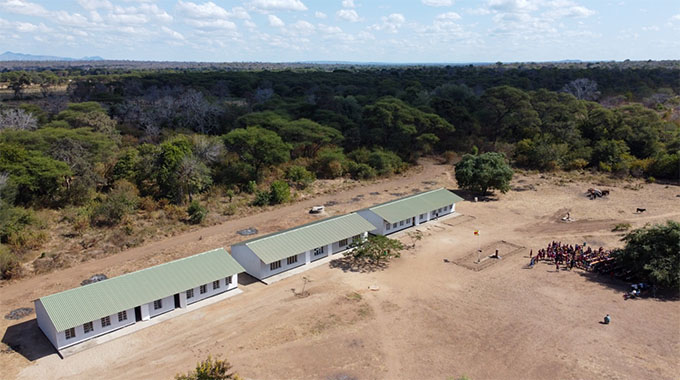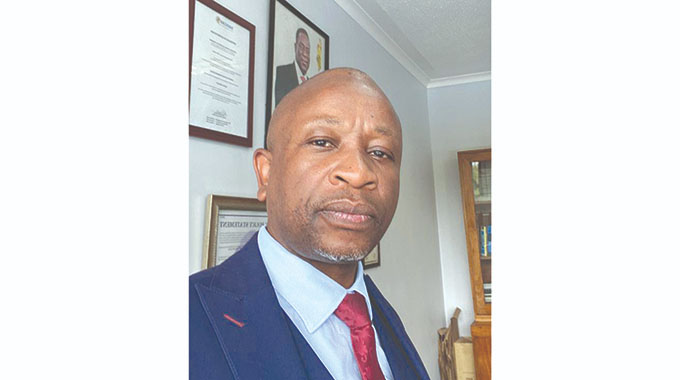Wildlife transforms Mbire community

Daniel Chigunwe Herald Correspondent
Whilst stories of human-wildlife conflict seem to dominate the discourse of the indigenous people of Mbire, Mashonaland Central Province, a major fact that has been overlooked over the years is how trophy hunting has contributed to the socio-economic development of the Dande valley.
Mbire, located in the Zambezi River basin, is one of Zimbabwe’s wildlife-rich areas.
It is endowed with large herds of elephants, zebras, antelopes, buffaloes, lions, leopards and cheetahs.
Meandering streams and rivers give the district a distinctive natural environment.

CAMPFIRE programs are improving the welfare of learners in Mbire district schools
The presence of lush forests in areas like Kanyemba, Angwa, Masoka, Mushongahande and Chitsungo provides natural habitat for wildlife.
This is a place of adventure for hunters but a somewhat dangerous one for human and livestock.
Since the formation of the Communal Areas Management Program for Indigenous Resources (CAMPFIRE) around 1987, the Mbire community has largely benefited from the wildlife.
Over the years and through funds coming from trophy hunting, the Mbire Rural District Council has managed to implement various development programs, including the construction of clinics and schools.

Rehabilitated staff quarters at Gonono Primary School
The local authority is also using the funds to secure food aid for the underprivileged, as well as mitigating disasters arising from human and wildlife conflict.
Despite all these benefits for the local community, the British government recently passed the Hunting Trophies (Import Prohibition) Bill which is being interpreted as another ill-gotten means to curtail Africa’s development.
In a recent interview with The Herald, Mbire Rural District Council chairperson, Councillor Ishmael Chaukura who is also the head of the Community Campfire Association of Zimbabwe (CCAZ) revealed how trophy hunting contributes to the development of societies that are endowed with wildlife.
“Sport hunting in Zimbabwe provides the primary economic and financial basis for implementing Campfire programs, with revenue allocated to district council’s levies, district wildlife management activities and to the wildlife producing communities as represented by Ward Campfire Management Committees (WCMC).

Renovated classroom blocks at Gonono Primary School
“Income allocated to (WCMC) provide incentives for households who participate in the collective management of wildlife.
“About 120 community game rangers in the district are paid from trophy hunting revenues. In times of drought, communities also get food aid through funds that come from trophy hunting.
“From 1989 to date, several schools, clinics and community conference centres have been built in marginalized communities, with funds coming from Campfire. Several people are employed in safari camps as drivers and game guards,” said Councillor Chaukura.
“It is unfortunate that the British government is insensitive to this reality. The idea to impose this bill is an indirect way of suffocating Africa’s wildlife resources,” added Councillor Chaukura.

Villagers receive mealie-meal purchased from hunting revenues in Masoka ward 11 Mbire RDC
Currently, the Mbire community is witnessing continued transformation in the education sector through the work being spearheaded by philanthropist and safari operator, Mr Myles McCallum who has built and rehabilitated classroom blocks and teachers’ staff quarters.
Mr Callum has also drilled boreholes in many parts of the wildlife-rich valley. He facilitated the drilling of solar-powered boreholes at the National Parks Sub Station, Angwa Bridge and Kanyemba Clinic.
Twelve more borehole installations have been done for the wildlife.

Mbire community is witnessing continued transformation in the education sector through the work being spearheaded by philanthropist and safari operator, Mr Myles McCallum.
“I cherish the idea of empowering the community, hence the new classroom blocks l am building at the schools. I am also rehabilitating existing buildings and ensuring that both learners and teachers have an improved life,” said Mr McCallum.
“We have ongoing projects at Gonono Primary School where we began by rehabilitating the existing two classroom blocks and teachers’ quarters. The next phase was the building of state-of-the-art classroom blocks, we are only left with painting them before handing them over to the community,” he said.

New completed classroom blocks at Gonono Primary school
Classroom blocks have also been rehabilitated at Mupedzapasi Primary School.








Comments